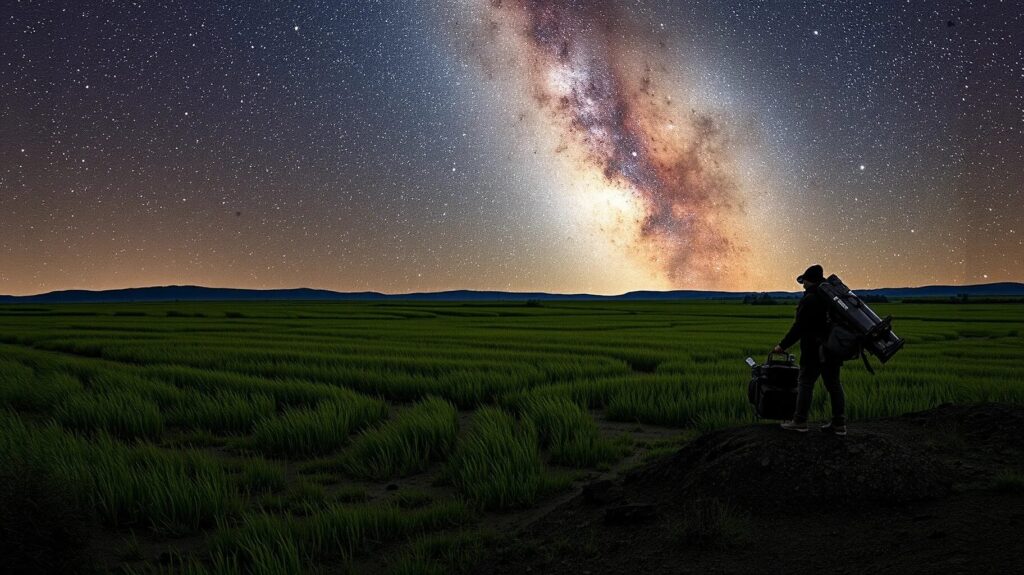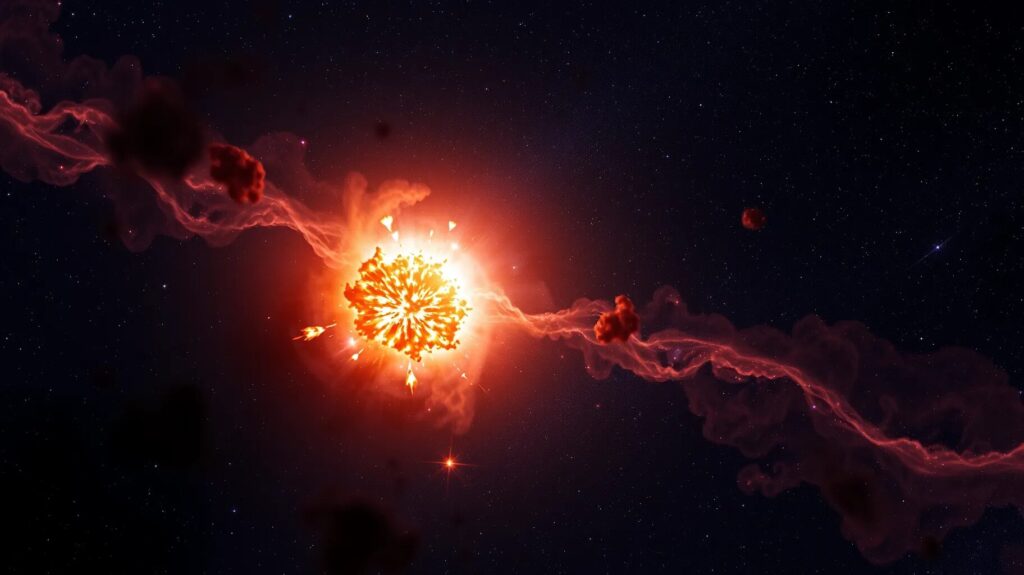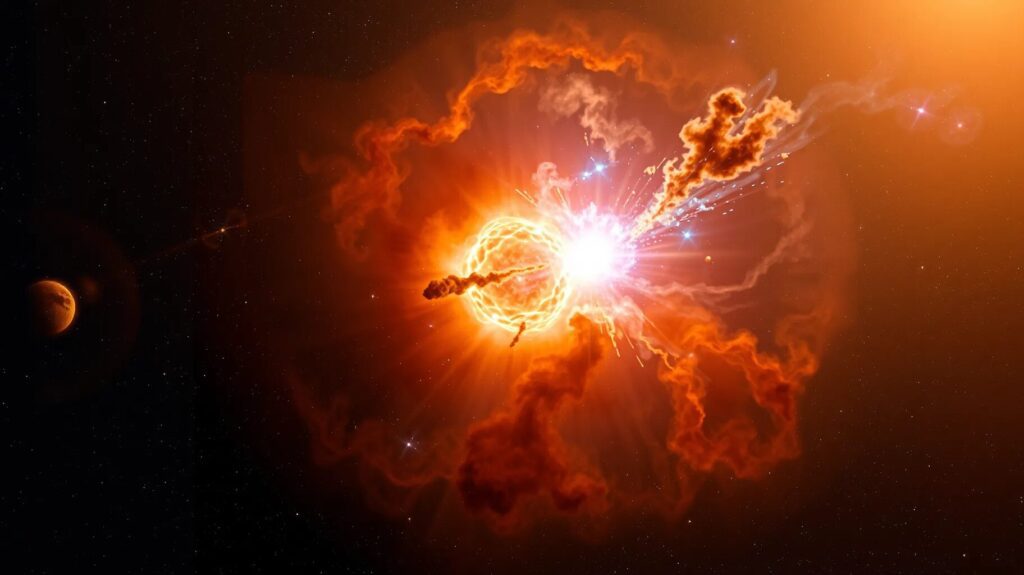
The sky isn’t the limit anymore—especially when it comes to our understanding of the cosmos. In September 2024, two major AI institutes dedicated to advancing astronomy were announced, marking a pivotal moment in space science.
These groundbreaking institutes are set to harness the power of artificial intelligence to accelerate discoveries in space, potentially unraveling some of the universe’s deepest mysteries.
Funded by a $20 million grant from the National Science Foundation (NSF) and the Simons Foundation, these institutes represent a bold step toward integrating AI with astronomical research. The goal? Revolutionize how we study the cosmos by developing cutting-edge AI tools capable of managing and analyzing vast amounts of data.
NSF-Simons AI Institute for the Sky (SkAI)
One of the key players in this revolutionary development is the NSF-Simons AI Institute for the Sky (SkAI). Based at Northwestern University, SkAI is designed to tackle one of the biggest challenges in modern astronomy: the sheer volume of astronomical data. As the Vera C. Rubin Observatory prepares to conduct sky surveys, SkAI’s mission will be to manage and analyze the vast datasets these surveys will generate. This is no small feat—terabytes of data are captured every single night by these powerful telescopes.
But SkAI aims to go beyond just managing data. Its ambition is to unlock hidden patterns and correlations that traditional methods might overlook. By using AI-driven models, SkAI will help researchers delve deeper into phenomena like black holes, stars, and galaxies, potentially transforming our understanding of the cosmos. The institute is also committed to education, focusing on training the next generation of astronomers in AI methodologies, ensuring they are equipped for this data-rich era.
NSF-Simons AI Institute for Cosmic Origins (CosmicAI)

The second institute making waves is the NSF-Simons AI Institute for Cosmic Origins (CosmicAI), headquartered at the University of Texas at Austin. While SkAI focuses on the broader picture of sky surveys, CosmicAI hones in on some of the most fundamental mysteries of the universe, including dark matter and the origins of galaxies and stars.
CosmicAI’s mission is to leverage AI to probe the cosmos at its deepest levels. One of the institute’s most exciting projects is the development of an “astronomy copilot”—an AI-powered assistant designed to help scientists navigate through the overwhelming sea of data and complex models. This copilot is set to democratize access to astronomical insights, allowing more researchers to contribute to groundbreaking discoveries without needing an advanced technical background.
Revolutionizing Data Processing in Astronomy
The combination of SkAI and CosmicAI signals a monumental shift in how we approach space exploration. Traditionally, astronomers have had to comb through immense datasets manually or with basic computational tools, often leading to slower discoveries. However, AI’s ability to process massive datasets at unprecedented speeds is already proving to be a game-changer. By automating the detection of patterns, anomalies, and celestial events, these AI institutes can unlock insights that may have taken years to find using traditional methods.
Astronomers are particularly excited about how AI can predict rare cosmic phenomena, such as supernovae or solar flares, well in advance. Imagine the ability to observe these occurrences as they unfold in real-time, allowing for deeper study and understanding. The potential applications for these AI models are endless.
Unlocking the Secrets of Dark Matter and Cosmic Origins
What makes CosmicAI stand out is its emphasis on probing the deepest secrets of the universe. Understanding dark matter—an elusive substance that makes up most of the universe’s mass—has long been a goal for astronomers. But the answers have remained just out of reach. By developing AI techniques to simulate galaxy formations and other cosmic structures, CosmicAI could finally offer clues about the nature of dark matter.
And it doesn’t stop there. The origins of galaxies, stars, and the universe itself are all under CosmicAI’s scrutiny. These institutes aren’t just working on incremental advancements; they aim to challenge and redefine the foundations of modern astrophysics.
Training the Next Generation of AI-Driven Astronomers
One of the most exciting aspects of these new institutes is their commitment to education. SkAI and CosmicAI are both dedicated to fostering the next generation of astronomers who are as adept at working with artificial intelligence as they are with telescopes. The institutes will create training programs, workshops, and research opportunities for students, ensuring that young scientists are equipped with the tools needed to navigate the future of astronomy.
By integrating AI-driven methodologies into their research, these young astronomers will be able to tackle some of the most complex challenges facing the field. This fusion of traditional astronomy with advanced computational science is a vital step in ensuring that the discoveries made today pave the way for even more profound breakthroughs tomorrow.
Expanding Human Knowledge with AI-Powered Exploration

The collaboration between AI and astronomy is about more than just speed—it’s about expanding the limits of human knowledge. These AI institutes are built to foster collaboration between data scientists, astronomers, and physicists, forming a hub where human curiosity meets machine learning. This partnership is bound to generate insights that will not only transform the field but could also fundamentally reshape our understanding of the universe.
With AI at their side, astronomers can dive deeper into cosmic phenomena, from the search for habitable planets to understanding the origins of stars. These institutes aim to democratize access to complex data, making it easier for researchers around the world to contribute to the next big discovery.
The launch of these AI institutes is a monumental step in our quest to explore the universe. By combining the unparalleled data processing abilities of AI with the deep expertise of astronomers, the future of space discovery looks incredibly promising. SkAI and CosmicAI are more than just research centers—they are the gateway to a new era of understanding.
With these institutes, the horizon of astronomical discovery has just broadened in ways we can hardly fathom. If the stars have always seemed out of reach, AI is about to bring them a little closer.
Prepare for the universe to reveal its secrets—one AI-assisted discovery at a time.
Resources
- National Science Foundation (NSF) Official Website
- The NSF is a major supporter of scientific research and has contributed funding to the newly launched AI institutes.
- https://www.nsf.gov
- Simons Foundation
- The Simons Foundation, a major supporter of scientific research, has co-funded these institutes to help advance the intersection of AI and astronomy.
- https://www.simonsfoundation.org
- Vera C. Rubin Observatory
- The observatory that will play a crucial role in the work conducted by SkAI, generating vast sky survey data for analysis.
- https://www.lsst.org
- Northwestern University’s SkAI Program
- Learn more about the NSF-Simons AI Institute for the Sky and its focus on AI-driven astronomy.
- https://news.northwestern.edu
- University of Texas at Austin – CosmicAI Program
- Explore the CosmicAI institute at UT Austin and its mission to tackle the mysteries of dark matter and galaxy formation.
- https://www.ae.utexas.edu
- NASA’s Exoplanet Exploration Program
- Discover more about NASA’s efforts to find Earth-like planets and how AI plays a crucial role in the search for extraterrestrial life.
- https://exoplanets.nasa.gov
- Journal of Astrophysics & Astronomy
- Stay updated on the latest scientific publications related to the field of astronomy and astrophysics, many of which now include studies using AI.
- https://www.springer.com/journal/12036
- AI for Space Exploration – IEEE Conference Papers
- A great resource for in-depth academic papers on how AI is used in space exploration, with numerous technical case studies.
- https://ieeexplore.ieee.org